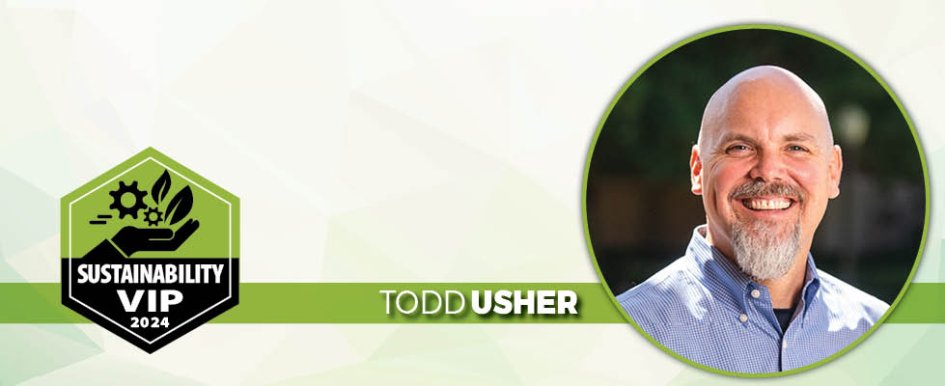
Todd Usher, founder and owner of Greenville, South Carolina-based Addison Homes, didn’t start in construction. In fact, he started out in chemical manufacturing. That experience, though, set him on the path to building sustainable homes.
“The company was very driven by sustainability. Even in the ’90s, they had a zero-landfill policy,” Usher said. “The owner was a huge fan of trees. Every one of the manufacturing facilities was essentially a small arboretum. … It was very unusual for a large, multinational, privately held corporation to have such a focus on sustainability and environmental stewardship.”
Usher fell in love with construction while managing rental properties fixing things for his tenants. He realized that building homes was something he wanted to do. When he was laid off from a different chemical company, he decided it was time to start that dream. That meant researching best practices in the industry, but Usher knew he wanted to focus on sustainability.
“I landed in the training course for a regional green building program out of Atlanta called Earth Craft House. That became [Addison Homes’] standard for construction. In 2002, we build our first Earth Craft House,” he said.
Today, Addison Homes builds projects that are Zero Energy Ready with a focus on air quality, durability and sustainability.
“We don’t focus on multimillion-dollar projects,” Usher said. “We focus on projects that are more mainstream, reachable and affordable by more people today. … My business has always been how we can make sustainability more affordable.”
There are challenges to building affordable, yet sustainable homes. The United States Department of Energy’s “Zero Energy Ready” home standards require that all heating and cooling systems are within the insulated envelope of the home, meaning ductwork can’t be run in a vented attic or crawlspace. It can be a challenge to fit everything into a home in a way that’s aesthetically pleasing and beautiful to potential buyers.
“We just tried this new approach that involved a different design to our roof trusses to create an insulated envelope in the attic,” Usher said. “We got to implementation, and it just didn’t work. It was more expensive than we budgeted for. I was like, ‘Wow, there must be a better way to do this.’”
Also among challenges facing the green home building space is labor. Addison Homes are built “two steps above code,” Usher said, but finding skilled laborers and contractors that are willing, and know how, to go above the minimum requirements has been a “daily struggle.”
Usher received a Ph.D. in construction science from Clemson University in 2022, and outside of his work with Addison Homes, is a part-time professor in the Master of Real Estate Development program at Clemson University. He teaches construction materials and methods and contractor operations, with a focus on sustainability.
“It’s fun. It keeps me in touch with the up-and-coming developers and constructors of the future,” he said. “And eventually I’m able to convince them that there is a business case for practicing sustainable construction.”
Usher also serves on the board of the Energy and Environmental Building Alliance, and in his spare time enjoys flying.
When it comes to building sustainable homes that are expected to last well into the future, Usher has one piece of advice: Don’t settle for below your standards.
“It is worth it to remind yourself that, ‘No, I’ve got a standard, this is the standard for our business, and we’re not going to settle for anything less,” he said.



